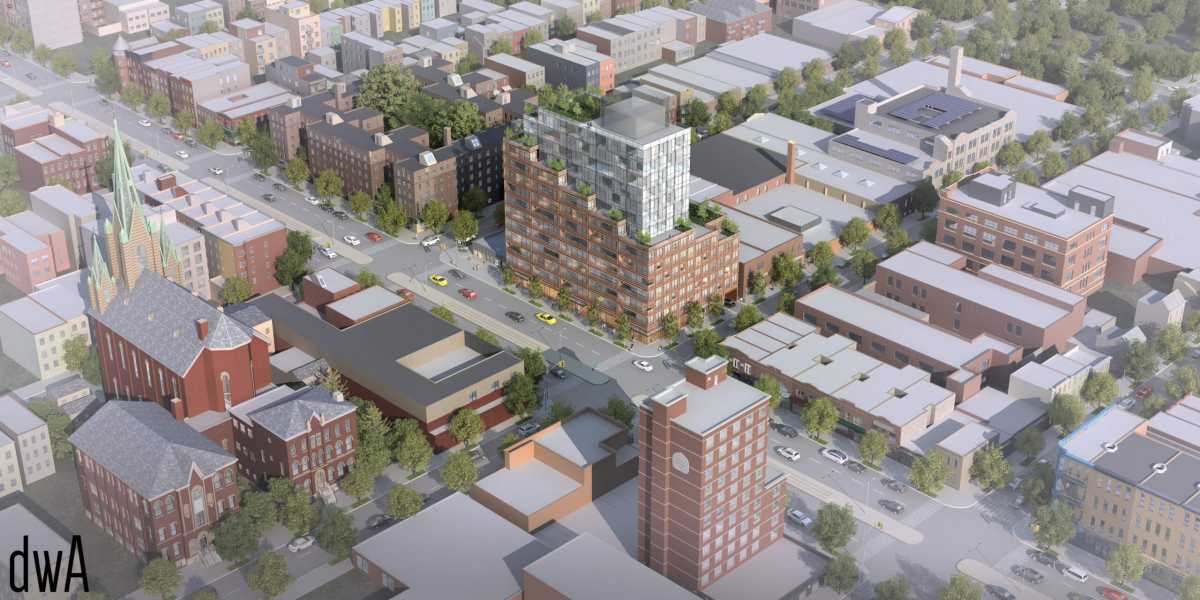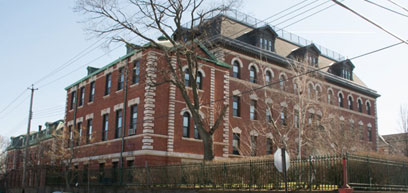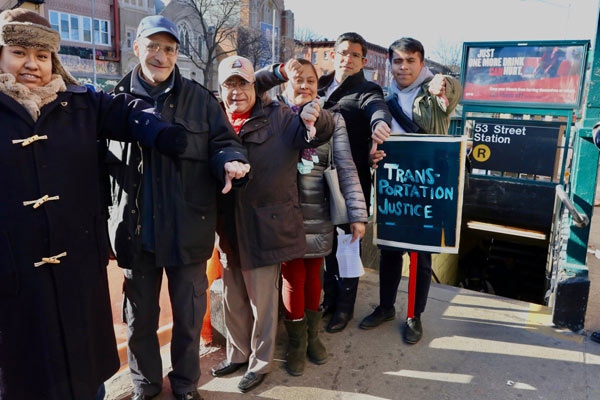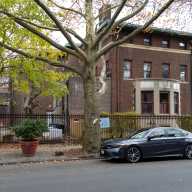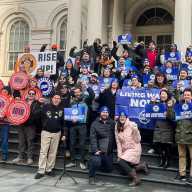Sunset Park’s Community Board 7 voted to approve a hotly-debated rezoning on Fourth Avenue on Wednesday, paving the way for a 14-story, 135-unit apartment building between 24th and 25th streets.
The civic panel’s advisory 25-to-16 vote comes after a series of contentious public meetings and protests over the project, where some members pushed the board to reject the development for including just 35 units as “below market rate.”
Totem, the developer behind the project, included the affordable housing units under the city’s Mandatory Inclusionary Housing program, which sets standards for the amount and the price of discounted units included in any building seeking a rezoning — leading some board members to approve the proposal for fear of losing the affordable units altogether.
“This is not a perfect project, but what I believe is that affordable housing is a protective factor to families,” said the board’s chairman, César Zúñiga. “While it’s a really hard pill to swallow, I would rather see 35 families with permanent affordable housing.”
Despite the developers adhering to city-mandated standards, some CB7 members pushed the builders to earmark all 135 units “affordable,” using the area’s median income as a guide for determining rental prices.
“Looking at the number of proposed affordable units, it’s incredibly small, particularly when looking at this large-sized luxury building,” said board member Justin Collins. “The negative impacts of this building will greatly outweigh the few affordable units that are there.”
Representatives for the company countered that constructing a building with 100 percent discounted apartments was financially unreasonable without government subsidies, especially after paying market price for the land.
“There is literally no public program that exists to bridge the gap required to build 100 percent affordable unless the land is close to free,” said Vivan Liao, a co-founder of Totem. “In this case, it was not.”
While Liao argued for creating such a citywide program to address New York’s housing crisis, the community should not expect private entities to absorb a financial hit for nothing in return — and the lack of a government plan is not worth losing out on 35 affordable homes in the neighborhood.
“We agree that this is a missed opportunity and that a more comprehensive approach to creating housing should be looked at citywide,” she said. “However those major comprehensive reforms will take time and in the absence of that reform, taking an all-or-nothing stance to this project as a matter of principle also seems to be a missed opportunity to create affordable housing now.”
The discounted units in the building will be targeted for families making between 30-and-60 percent of the city’s area median income — with 30 percent representing roughly $34,110 per year for a family of four.
Sunset Park’s housing crisis is one of the most severe in the city, where the population has ballooned from roughly 126,230 residents to 143,847 between 2010 and 2018 — and yet, the neighborhood actually lost more housing units than it added, leading to severe overcrowding in existing housing stock, according to a recent report.
The organization behind that study — the nonprofit Fifth Avenue Committee — will handle renting of the affordable units at 737 Fourth Ave. if it receives approval during the city’s roughly seven-month Uniform Land Use Review Process.
The next public hearing on the proposal will be held virtually at Borough Hall on Nov. 30. After Borough President Eric Adams weighs in, it will move through the process until it goes to the City Council, where Sunset Park Councilman Carlos Menchaca will have outsized say over the matter as the area’s representative.
Menchaca has not yet declared how he intends to vote on the matter, but told Brooklyn Paper earlier this month that he will take the concerns of the community into account when he makes his determination.
“I have consistently stated my concerns with MIH and Sunset Park’s need for deeply affordable housing, but will prioritize what I hear directly from the community,” he said.


